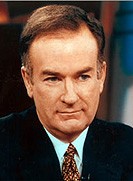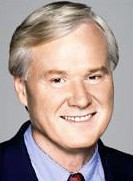
War of the words
Traveling by planes, trains and automobiles through snowstorms, two of cable news’ most popular political analysts successfully completed their maiden voyage to McFarlin Auditorium.
Despite the arduous trip, Chris Matthews of MSNBC and Bill O’Reilly of the Fox News Channel engaged in the “War of the Words” Sunday night at The Lacerte Family Lecture of the Willis M. Tate Distinguished Lecture Series.
After O’Reilly sat down, Matthews declared “hatred is the greatest weapon of mass destruction” while emphasizing the need to outsmart the enemy instead of fight them.
“You got to figure out how they get people to recruit, to join up and kill themselves,” Matthews said. “The way to beat them is not with passion or even with rhetoric. It’s with brains and the guts to know what is best for your country; and that means winning, not fighting.”
O’Reilly argued that if the United States did not invade Iraq, it would face the task of becoming a defensive player in a cat and mouse game. He also stated the futility of further United Nations inspections.
“You can’t find suitcases full of anthrax in a place the size of California,” O’Reilly said. “Little Hans Blix is not going to be able to find them.”
Matthews forecasted the possible repercussions within the Arab community in the event of a U.S. led attack on Iraq.
“Going to war with Iraq is going to cause us nothing but hatred in the world,” Matthews said. “Every young kid is going to be rooting for that son of a bitch over there, and they will be rooting for him against us.”
O’Reilly did concede that terrorist recruitment might increase in the short term due to the effects of an invasion. But he explained there would be positive consequences after the war was over due to a democratized Iraq, installation of intelligence bases within Iraq to track al-Qaeda and the increased pressure put upon other rogue governments such as Iran and Syria.
Despite the intense debate over President Bush’s foreign policy on Iraq and the merits of going to war, the standing room only audience’s reaction to the individual speakers’ points of view were met with reserved applause. Although the debate didn’t cause the members of the audience to rise to their feet, it did cause some of them to alter their views about the possible war with Iraq.
“After hearing the perspectives of both Mr. Matthews and Mr. O’Reilly I question my initial view,” senior economics and Spanish major Merritt Choate said. Choate, who stood in line for an hour and a half for a ticket said, “Mr. Matthews made me aware of possible repercussions of such a campaign that I hadn’t before entertained.”

War of the words








